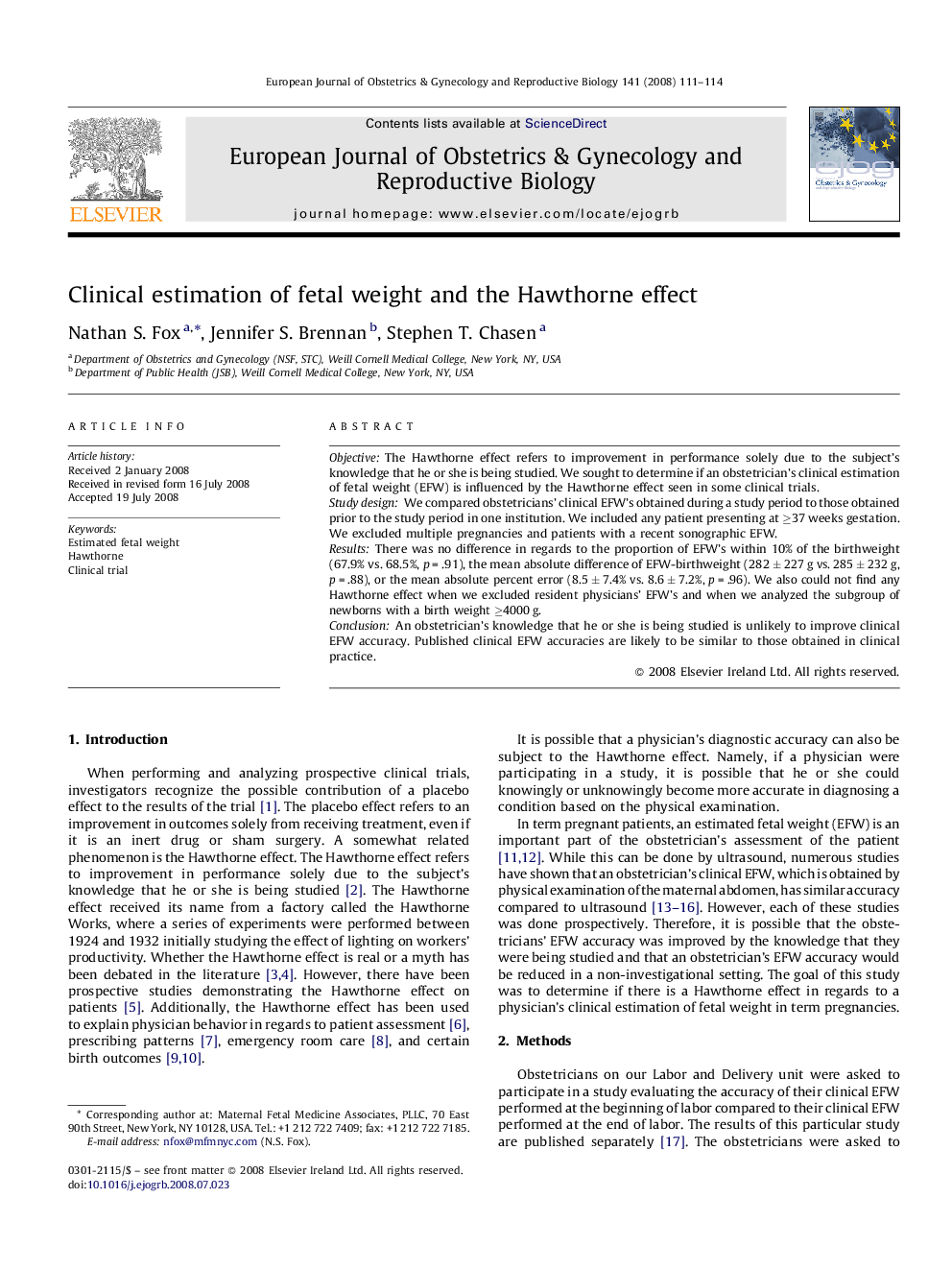| Article ID | Journal | Published Year | Pages | File Type |
|---|---|---|---|---|
| 3921323 | European Journal of Obstetrics & Gynecology and Reproductive Biology | 2008 | 4 Pages |
ObjectiveThe Hawthorne effect refers to improvement in performance solely due to the subject's knowledge that he or she is being studied. We sought to determine if an obstetrician's clinical estimation of fetal weight (EFW) is influenced by the Hawthorne effect seen in some clinical trials.Study designWe compared obstetricians’ clinical EFW's obtained during a study period to those obtained prior to the study period in one institution. We included any patient presenting at ≥37 weeks gestation. We excluded multiple pregnancies and patients with a recent sonographic EFW.ResultsThere was no difference in regards to the proportion of EFW's within 10% of the birthweight (67.9% vs. 68.5%, p = .91), the mean absolute difference of EFW-birthweight (282 ± 227 g vs. 285 ± 232 g, p = .88), or the mean absolute percent error (8.5 ± 7.4% vs. 8.6 ± 7.2%, p = .96). We also could not find any Hawthorne effect when we excluded resident physicians’ EFW's and when we analyzed the subgroup of newborns with a birth weight ≥4000 g.ConclusionAn obstetrician's knowledge that he or she is being studied is unlikely to improve clinical EFW accuracy. Published clinical EFW accuracies are likely to be similar to those obtained in clinical practice.
